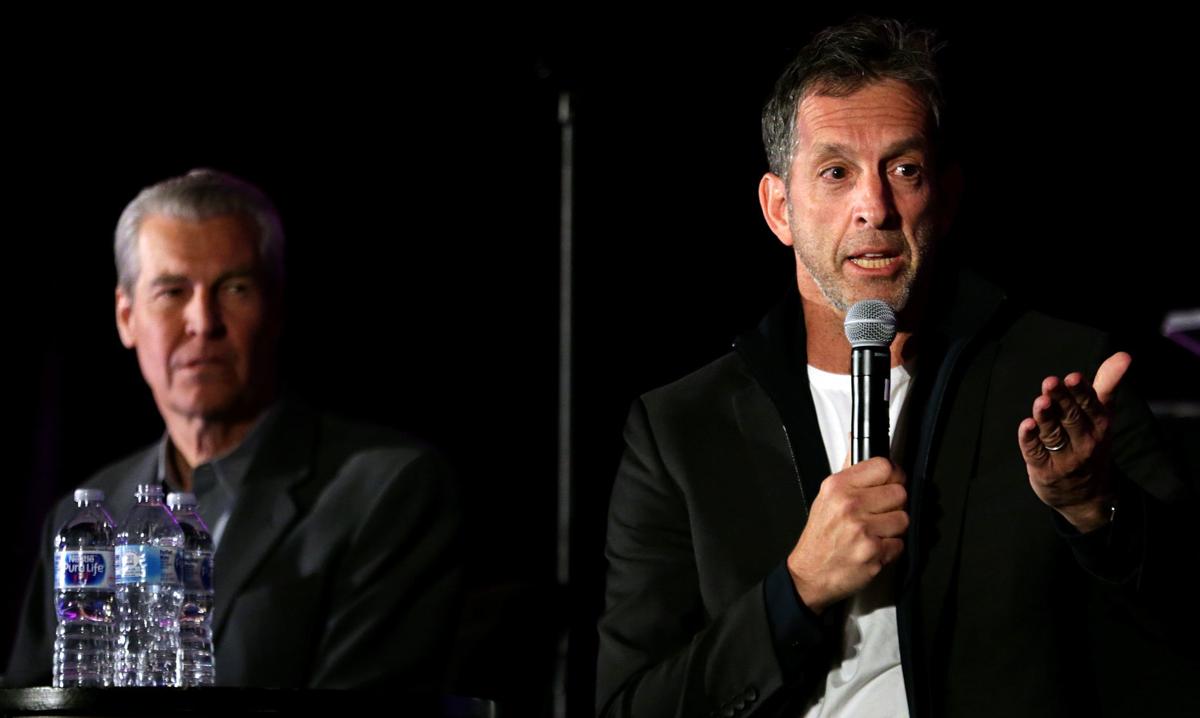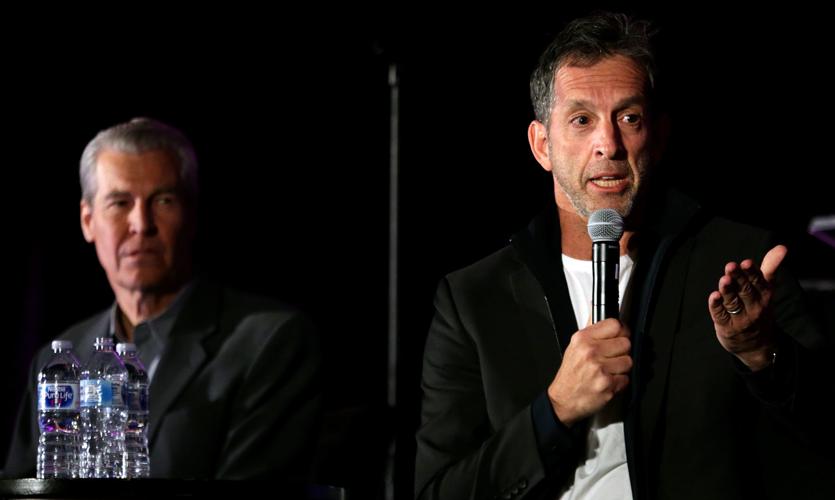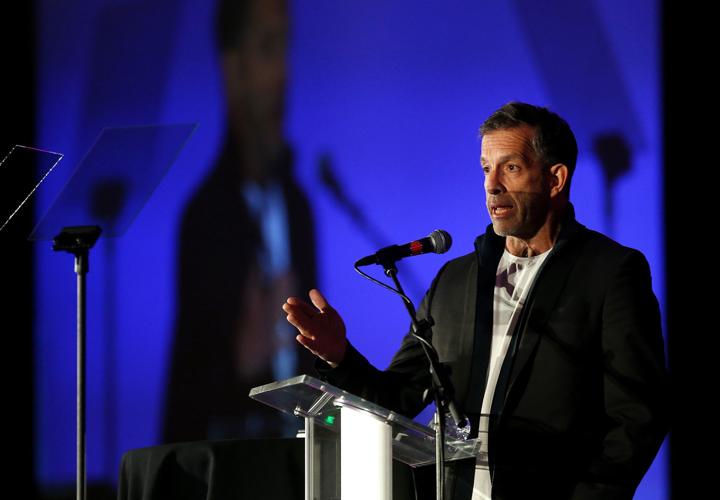Traditional retailers are refining their use of online browsing history and social media to reach customers and personalize their shopping experiences.
But much work remains to be done to put shopper data to best use, and engaging customers with company values is becoming more important in the new era of social activism, speakers said at the 22nd Annual Global Retailing Conference, hosted by the University of ├█Ķųų▒▓źŌĆÖs Terry J. Lundgren Center for Retailing.
Lundgren, retired CEO of MacyŌĆÖs and a UA alumnus, said despite the onslaught of online sales, nine out of 10 purchases are still made in a brick-and-mortar store.
ŌĆ£We certainly see a trend toward online shopping, but itŌĆÖs going to go from 10 percent to 11 or 12 percent, its not going to go to 50 percent overnight,ŌĆØ Lundgren said in an interview.
Some major retailers have driven online sales higher by using online data and channels to drive sales anywhere, anytime.
People are also reading…
For most people these days, the shopping experience starts on their smartphones.
ŌĆ£The way consumers are clearly shopping is theyŌĆÖre starting the search for the product theyŌĆÖre interested in with their phone or mobile device and theyŌĆÖre searching, whether they want a shirt or jacket or whatever, theyŌĆÖre seeing what their options are,ŌĆØ Lundgren said, ŌĆ£But the large, large majority of them are then going into a physical store and making the transaction there.ŌĆØ
Leveraging vast amounts of customer data now available from online retail sites and social media, retailers are targeting shoppers like never before.
Wonder why you got that popup ad for shoes?
ŌĆ£When you purchase an item, we can go to our site and find another 500 customers who purchased that item and what they purchased next, and then what they purchased next after that,ŌĆØ said Lundgren, who retired as CEO of MacyŌĆÖs last year. ŌĆ£So we can kind of get a feeling for what you might like, by the way your purchase pattern looks like others.ŌĆØ

Kenneth Cole, founder of Kenneth Cole Productions, speaks during the 2018 Global Retailing Conference, by the University of ├█Ķųų▒▓ź Terry J. Lundgren Center for Retailing, at the Westin La Paloma Resort and Spa, 3800 E. Sunrise Dr., on April 20, 2018, in ├█Ķųų▒▓ź, Ariz. The two-day conference concluded with a talk and discussion with fashion mogul Kenneth Cole.
SELLING SOCIAL
Prominent American designer Kenneth Cole said his company recently revised its business model, closing its outlet stores to focus on its online and third-party sales through department stores like MacyŌĆÖs, DillardŌĆÖs and Nordstrom. Kenneth Cole Productions still has a full-price retail store in New York City.
ŌĆ£In this new sharing economy you ride in other peopleŌĆÖs cars, stay in other peopleŌĆÖs homes, but the good news is, youŌĆÖre still buying your own shoes,ŌĆØ Cole said.
But online, Cole said, ŌĆ£You have to have the ability to react overnight, and it has to be a dialogue, not a monologue.ŌĆØ
To stay relevant either online or as a store, itŌĆÖs now more important than ever for retailers to engage customers at a social level, he said.
ŌĆ£WeŌĆÖre talking to people about not only whatŌĆÖs on their body but also whatŌĆÖs on their minds,ŌĆØ said Cole, whose longtime social activism has included advocacy for AIDS sufferers and the homeless.
Cole encouraged the more than 300 conference attendees, including about 80 UA retailing students, to participate in the ŌĆ£unprecedentedŌĆØ wave of social activism, pushing back against racism and sexism.
ŌĆ£Business should engage in this new activism,ŌĆØ he said. ŌĆ£Sitting on the sideline is no longer an option ŌĆö today, you either have the courage to take a stand or you have to step aside.ŌĆØ

ŌĆ£WeŌĆÖre talking to people about not only whatŌĆÖs on their body but also whatŌĆÖs on their minds,ŌĆØ Kenneth Cole says.
FROM WEB TO STORE
Several other speakers at the two-day conference said they are deep into efforts to leverage online consumer data and create new ways to reach customers at every step of the shopping process.
Tony Rogers, chief marketing officer for Walmart U.S., said the worldŌĆÖs biggest retailer is trying to link online shopping with the in-store experience and is essentially turning each of its stores into distribution centers for its online business, recognizing that for many customers, shopping starts with a smartphone.
ŌĆ£We are tied to our phones ŌĆö itŌĆÖs just 24/7,ŌĆØ Rogers said.
WalmartŌĆÖs new in-store pickup service, which allows customers to buy online and pick up within seconds via a growing number of self-service, automated ŌĆ£pickup towersŌĆØ at their local stores, has been a tremendous success, he said.
The company plans to expand the pickup-tower concept to 2,200 of its 4,700 stores this year, in the name of customer convenience, Rogers said, citing the growing number of households where every member works and many have second jobs.
ŌĆ£You can see where people need to save time and save money, and weŌĆÖre focused on both,ŌĆØ he said.
Walmart is expanding its online-based grocery delivery service from six pilot stores to 100 nationwide this year.
ŌĆ£ItŌĆÖs a process of ŌĆśtest and learnŌĆÖ ŌĆö weŌĆÖre trying all kinds of stuff,ŌĆØ Rogers said.
Meanwhile, MacyŌĆÖs has been refining its marketing strategy to use customer data to ŌĆ£narrowcastŌĆØ its message to ŌĆ£digitally retargetŌĆØ consumers, said Rich Lennox, chief marketing officer for the retail giant.
That refinement eventually creates a ŌĆ£pullŌĆØ effect to attract sales, as opposed to ubiquitous and sometimes obnoxious ŌĆ£pushŌĆØ advertising, Lennox said, adding, ŌĆ£No one is waiting for our marketing to interrupt their lives.ŌĆØ
While MacyŌĆÖs has been closing stores after suffering declining sales, Lennox has worked to build on its longstanding brand loyalty with a new marketing push targeting fashion-minded consumers and its top customers.
Lennox credited a long-term ad campaign launched last October and a new fashion-focused site, MacyŌĆÖs Presents The Edit, along with new perks for MacyŌĆÖs Star Rewards customers with turning around 11 straight quarters of falling sales at the end of 2017.
CRUNCHING NUMBERS
Meanwhile, luxury retailer Neiman Marcus has embraced online sales, which now comprise about 35 percent of the companyŌĆÖs total revenues, said Karen Katz, who recently retired as NeimanŌĆÖs CEO.
Already focused on personalized service for its affluent customers, Neiman has launched a new system that gives salespeople on the floor instant access to customersŌĆÖ shopping and personal preferences.
Neiman Marcus, which launched a mobile-payment app with Capital One in 2015, is looking to expand mobile-payment options to make purchases ŌĆ£frictionless,ŌĆØ she said.
ŌĆ£ThatŌĆÖs the wave of the future, those kinds of things that make shopping easier but really resonate with customers when they come into the store,ŌĆØ Katz said.
Several speakers expressed the growing need for data-analytics experts to help refine retailersŌĆÖ marketing strategies.
Lundberg noted that MacyŌĆÖs and other retailers are busy hiring computer scientists, including Ph.D.s, to help them make better use of mounting volumes of customer data.
ŌĆ£Consumers today have much higher expectations, theyŌĆÖve risen dramatically,ŌĆØ NeimanŌĆÖs Katz said.
ŌĆ£I think we can use data to be better merchants, to be forward-thinking about what weŌĆÖre going to buy.ŌĆØ
Contact senior reporter David Wichner at dwichner@tucson.com or 573-4181. On Twitter: @dwichner. On Facebook:
















